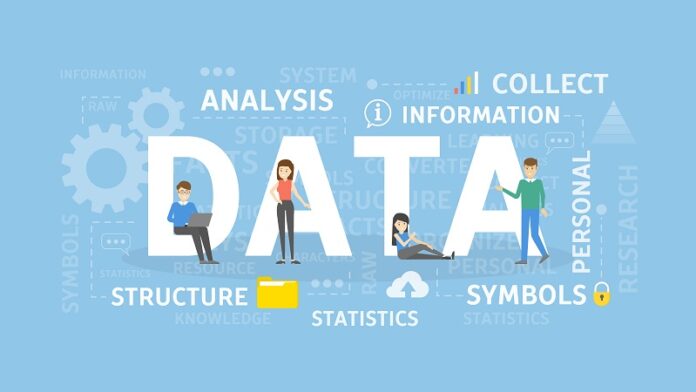[ez-toc]In today’s rapidly evolving business landscape, the integration of data science has come up as a transformative force, revolutionizing how organizations operate, strategize, and innovate. With an unprecedented volume of data generated every second, businesses that harness the power of data science gain a competitive edge, unlocking insights that drive informed decision-making, enhance efficiency, and foster unparalleled growth. From predictive analytics to machine learning algorithms, the advantages of incorporating data science into modern businesses are multifaceted, offering many opportunities to optimize processes, personalize customer experiences, and stay ahead in an increasingly dynamic marketplace.
As data becomes increasingly central to business operations, more organizations embrace data science technologies to propel growth and progress. Leveraging advanced analytics and machine learning, businesses extract valuable insights from vast datasets to inform strategic decisions, enhance operational efficiency, and drive innovation. Pursuing a data science course equips individuals with the skills needed to navigate this data-driven landscape, offering expertise in statistical analysis, programming languages, and data visualization. With a growing demand for data-savvy professionals across industries, mastering data science opens doors to lucrative career opportunities, enabling individuals to contribute to organizational success and thrive in the digital age.
Role of Data Science in Modern Business
In modern business, data science is pivotal in driving decision-making, innovation, and competitiveness. Organizations extract valuable insights from vast datasets by leveraging advanced analytics, machine learning algorithms, and data visualization techniques. These insights inform strategic initiatives, optimize operations, and enhance customer experiences. Data science enables predictive modeling, risk assessment, and personalized marketing strategies, empowering businesses to adapt swiftly to market dynamics and stay ahead of the competition and competitive job market. Moreover, it facilitates the identification of emerging trends, customer preferences, and untapped opportunities, guiding businesses toward sustainable growth and profitability in an increasingly data-driven world.
Advantages of Data Science
The advantages of data science in modern businesses are multifaceted and profound, fundamentally reshaping how organizations operate, innovate, and succeed in today’s dynamic marketplace.
Informed Decision-Making:
Data science empowers businesses to make informed decisions backed by evidence and insights derived from data analysis. By analyzing historical data and real-time information, organizations can identify trends, patterns, and correlations that inform strategic initiatives, operational optimizations, and resource allocations. This data-driven decision-making process minimizes guesswork and enhances the likelihood of success.
Competitive Advantage:
In an increasingly competitive landscape, data science provides a significant competitive advantage. By leveraging advanced analytics techniques such as predictive modeling and machine learning, businesses can anticipate market trends, identify emerging opportunities, and stay ahead of competitors. Through data-driven insights, organizations can fine-tune their strategies, products, and services to better meet customer needs and preferences.
Operational Efficiency:
Data science enables organizations to streamline processes, automate tasks, and optimize workflows, leading to improved operational efficiency. By analyzing operational data, businesses can identify bottlenecks, inefficiencies, and areas for improvement. Through predictive maintenance models and supply chain optimization algorithms, organizations can minimize downtime, reduce costs, and enhance productivity.
Personalized Customer Experiences:
Data science empowers businesses to deliver personalized customer experiences tailored to individual preferences and behaviors. By analyzing customer data, such as purchase history, browsing patterns, and demographic information, organizations can segment their audience and create targeted marketing campaigns, product recommendations, and promotional offers. This personalization enhances customer satisfaction, fosters loyalty, and drives repeat business.
Risk Management:
Data science plays a crucial role in risk management by enabling organizations to identify, assess, and mitigate potential risks and uncertainties. Through advanced analytics and predictive modeling, businesses can forecast market volatility, detect fraudulent activities, and assess credit risks. By proactively addressing risks, organizations can safeguard their assets, protect their reputation, and maintain financial stability.
Innovation and Product Development:
Data science fuels innovation by uncovering insights and opportunities that inspire new ideas and solutions. By analyzing market trends, consumer feedback, and competitor strategies, businesses can identify unmet needs and market gaps. Data-driven innovation enables organizations to develop new products, services, and business models that resonate with customers and drive revenue growth.
Improved Recruitment and Talent Management:
Data science enhances recruitment and talent management processes by enabling organizations to identify and attract top talent. By analyzing candidate data, resumes, and job performance metrics, businesses can identify the most suitable candidates for specific roles. Additionally, data science facilitates workforce planning, skills gap analysis, and performance evaluation, enabling organizations to optimize their talent strategies and maximize employee potential.
Regulatory Compliance and Governance:
In regulated industries, data science helps organizations ensure compliance with legal and regulatory requirements. By analyzing data and monitoring key performance indicators, businesses can identify compliance risks, detect anomalies, and implement corrective measures. Data science also enables organizations to maintain data privacy and security, protecting sensitive information from unauthorized access and breaches.
The advantages of data science in modern businesses are vast and transformative, spanning various aspects of operations, strategy, and customer engagement. By harnessing the power of data and analytics, organizations can drive innovation, gain a competitive edge, and thrive in today’s data-driven economy.
Conclusion
The advantages of integrating data science into modern businesses are undeniable, offering a myriad of benefits including informed decision-making, competitive advantage, operational efficiency, and personalized customer experiences. Embracing data science empowers organizations to navigate the complexities of today’s marketplace with confidence and agility. Moreover, for individuals aspiring to pursue a career in this domain, undertaking a data science course provides essential skills and knowledge needed to thrive in the field. From statistical analysis to machine learning techniques, such courses offer practical training and hands-on experience, equipping learners with the expertise required to excel in data-driven roles and contribute meaningfully to organizational success.












